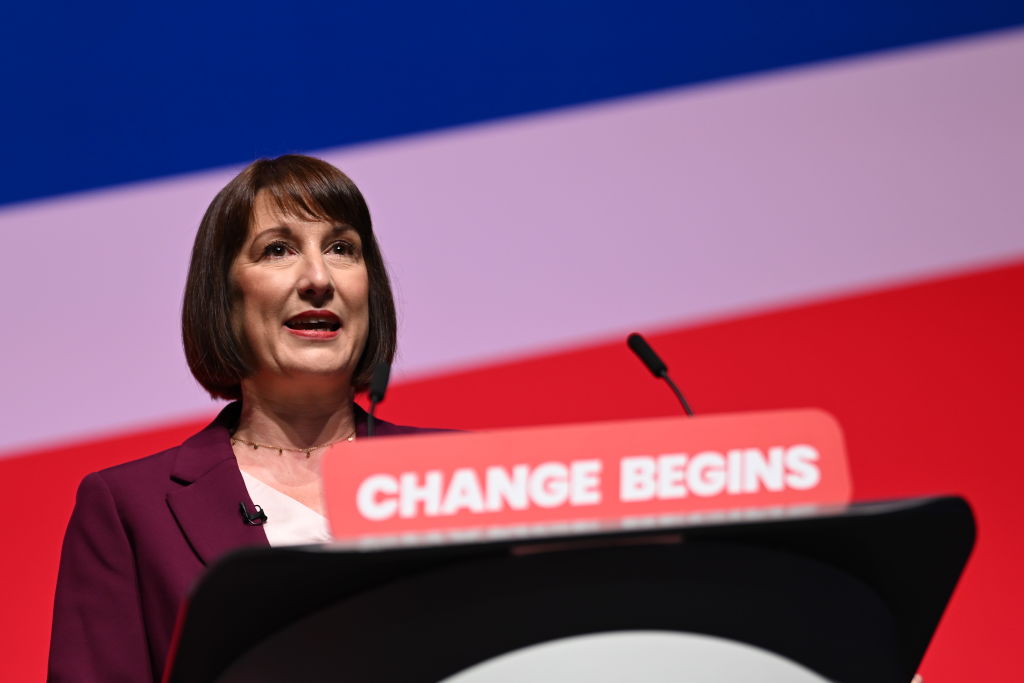OECD upgrades UK economic growth forecasts - here is what it means for you
The OECD ranked Britain joint-second among the G7 developed countries, behind the US


Get the latest financial news, insights and expert analysis from our award-winning MoneyWeek team, to help you understand what really matters when it comes to your finances.
You are now subscribed
Your newsletter sign-up was successful
Want to add more newsletters?

Twice daily
MoneyWeek
Get the latest financial news, insights and expert analysis from our award-winning MoneyWeek team, to help you understand what really matters when it comes to your finances.

Four times a week
Look After My Bills
Sign up to our free money-saving newsletter, filled with the latest news and expert advice to help you find the best tips and deals for managing your bills. Start saving today!
The UK economy has received the biggest annual growth upgrade of all the G7 countries from the Organisation for Economic Cooperation and Development (OECD).
It comes ahead of chancellor Rachel Reeves's first Budget in October, where she intends to explain how she will boost UK economic growth, with tax rises expected.
The OECD ranked Britain joint-second among the G7 developed countries, behind the US, in its latest economic forecast. In May the Paris-based body had the UK in last place.
MoneyWeek
Subscribe to MoneyWeek today and get your first six magazine issues absolutely FREE

Sign up to Money Morning
Don't miss the latest investment and personal finances news, market analysis, plus money-saving tips with our free twice-daily newsletter
Don't miss the latest investment and personal finances news, market analysis, plus money-saving tips with our free twice-daily newsletter
Describing Britain’s economic growth as “robust", the OECD said the UK economy was on course to expand by 1.1% this year, compared to a forecast of just 0.4% in the spring. The forecast of 1.2% growth for 2025 was maintained by the organisation.
But, while economists were positive on growth, they said the UK is still set to have the highest inflation of the bloc, with its prediction of 2.7% inflation for this year meaning the UK is still the country in the G7 with the fastest-rising prices. The G7 countries consist of the UK, the US, France, Canada, Germany, Japan and Italy.
Reeves said: “Faster economic growth figures are welcomed, but I know there is more to do and that is why economic growth is the number one mission of this government.
“Next month’s Budget will be about fixing the foundations, so we can deliver on the promise of change and rebuild Britain.”
What does the OECD upgrade mean for the UK economy and interest rates?
The revised figures will be pleasing for the UK government as it shows the British economy is moving in the right direction. However, the fact the OECD believes the UK will still have the highest inflation of all of the G7 countries over the course of the year is bad news for those calling for more cuts to interest rates.
Speaking after the Bank of England’s September decision to hold interest rates at 5%, governor Andrew Bailey said the MPC “should be able to reduce rates gradually over time” as long as there aren’t any surprises in the data. However, he was clear that the MPC would follow a cautious path ahead. “It’s vital that inflation stays low, so we need to be careful not to cut too fast or by too much,” he said.
The MPC does not meet in October, which means it only has two remaining meetings this year – one in November followed by another in December. The majority of experts have said another rate cut looks likely in November, but that could change if the economic data does not play ball.
Wage growth, core inflation and services inflation are all important metrics to watch, and there is still progress to be made.
Although wage growth has slowed to 5.1%, the slowest rate in over two years, the indicator is still higher than the Bank of England would like. Meanwhile, core and services inflation both crept up in August. Core inflation rose from 3.3% to 3.6%, while services inflation increased from 5.2% to 5.6%.
Get the latest financial news, insights and expert analysis from our award-winning MoneyWeek team, to help you understand what really matters when it comes to your finances.
Chris is a freelance journalist, and was previously an editor and correspondent at the Financial Times as well as the business and money editor at The i Newspaper. He is also the author of the Virgin Money Maker, the personal finance guide published by Virgin Books, and has written for the BBC, The Wall Street Journal, The Independent, South China Morning Post, TimeOut, Barron's and The Guardian. He is a graduate in Economics.
-
 Can mining stocks deliver golden gains?
Can mining stocks deliver golden gains?With gold and silver prices having outperformed the stock markets last year, mining stocks can be an effective, if volatile, means of gaining exposure
-
 8 ways the ‘sandwich generation’ can protect wealth
8 ways the ‘sandwich generation’ can protect wealthPeople squeezed between caring for ageing parents and adult children or younger grandchildren – known as the ‘sandwich generation’ – are at risk of neglecting their own financial planning. Here’s how to protect yourself and your loved ones’ wealth.
